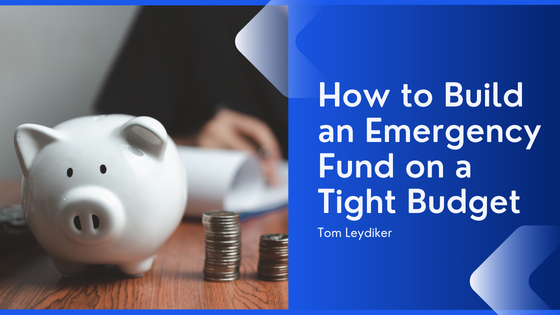An emergency fund is like a financial parachute that can help soften the blow of unexpected expenses or even financial catastrophes. It serves as a safety net for any unforeseen situation and is crucial for achieving monetary stability and peace of mind. Even small setbacks can become significant obstacles without an emergency fund, especially for those with limited budgets. Therefore, having an emergency fund is essential and a wise and responsible financial decision.
Starting Small but Steady
Building an emergency fund when you have a strict budget may seem challenging, but it can be done by starting small. Start by putting a small, doable amount of money from each paycheck on the side, even if it’s just $5 or $10. The key is consistency, not quantity.
Budgeting for Savings
Budgeting is crucial for finding areas where you can reduce expenses and redirect the money saved into your emergency fund. Assess your spending patterns and identify the expenditures you can reduce or do without.
Automating Your Savings
Automating your savings can simplify the process of saving an emergency fund. Create a direct deposit from your paycheck into a savings account specifically for emergencies. This “out of sight, out of mind” approach enables you to save without consciously thinking about it.
Finding Extra Money
Look for ways to generate extra income that can be directed into your emergency fund. This might include taking on a part-time job, selling unused items, or doing freelance work. Every little bit adds to your fund.
Prioritizing Your Spending
Prioritize spending on essentials like rent, utilities, and groceries, and use any leftover money to grow your emergency fund. This might mean sacrificing some wants for the time being, but the financial security is worth it.
Keeping Your Emergency Fund Accessible
Make your emergency fund readily retrievable in case of emergency, but keep it away from your ordinary checking account to resist temptation. A high-yield savings account could be a good choice, characterized by an accessible nature and a small reward for your savings.
Developing an emergency fund during hard times takes perseverance, self-discipline, and a proactive way of saving. The first and most important step is to start small by budgeting wisely and finding ways to increase your savings; this will eventually lead to a savings fund that will give you financial security and peace of mind.

